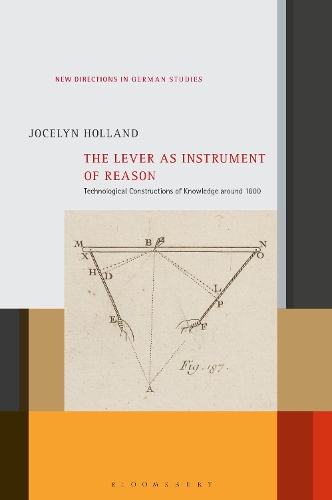
The Lever as Instrument of Reason: Technological Constructions of Knowledge around 1800
(Paperback)
Available Formats
Publishing Details
The Lever as Instrument of Reason: Technological Constructions of Knowledge around 1800
By (Author) Prof Jocelyn Holland
Bloomsbury Publishing PLC
Bloomsbury Academic USA
26th November 2020
26th November 2020
United States
Classifications
Tertiary Education
Non Fiction
Literary theory
Philosophical traditions and schools of thought
160
Physical Properties
Paperback
224
Width 140mm, Height 216mm
263g
Description
The lever appears to be a very simple object, a tool used since ancient times for the most primitive of tasks: to lift and to balance. Why, then, were prominent intellectuals active around 1800 in areas as diverse as science, philosophy, and literature inspired to think and write about levers In The Lever as Instrument of Reason, readers will discover the remarkable ways in which the lever is used to model the construction of knowledge and to mobilize new ideas among diverse disciplines. These acts of construction are shown to model key aspects of the human, from the more abstract processes of moral decision-making to a quite literal equation of the powerful human ego with the supposed stability and power of the fulcrum point.
Reviews
The Lever as Instrument of Reason is an inquiry into the theoretical use of the trope of the lever in major thinkers of the 18th and 19th centuries. It explores not what work a real lever can do but what epistemological work references to the lever can do in this crucial period of intellectual history. As she discusses the deployment of the figure of the lever, Holland takes us on a tour de force from Kant through Romanticism and Naturphilosophie to nineteenth-century psychology, providing along the way thoroughly original insights into shifting conceptions of the nature of knowledge and humanity. Hollands is a mature book that prompts us to consider anew our understanding of critical junctures of 18th- and 19th-century German and European intellectual history. * John Smith, Professor of German, University of California, Irvine, USA *
In The Lever as Instrument of Reason, Jocelyn Holland provides an exceptionally innovative and much-needed alternative to traditional scholarship, which has stressed Romanticism's focus on organic thinking. Through fascinating readings of texts by authors such as Kant, Novalis, and Schelling, Holland reveals how the figure of the lever became a key instrument for the conceptualization of cognition, feeling, and selfhood around 1800. This is an exciting and timely book! * Christine Lehleiter, Associate Professor, Department of Germanic Languages and Literatures, University of Toronto, Canada *
Holland's The Lever is original on several levels at once, offering a piercing interpretation of Romantic philosophys deep mechanical commitments, tracing the Idealist legacy forward to the foundations of scientific psychology and positivism, and offering a new standard for the study of the philosophy of nature or Naturphilosophie. The book overturns clichs of intellectual history and history of science at every turn. It is that rare work that cuts to the core of the conceptual and metaphorical invention that drives the humanities. * Leif Weatherby, Associate Professor of German, New York University, USA *
Author Bio
Jocelyn Holland is Associate Professor of German at the University of California, Santa Barbara and Professor of Comparative Literature at the California Institute of Technology, USA. She is the author of German Romanticism and Science: The Procreative Poetics of Goethe, Novalis and Ritter (2009) and Key Texts on the Science and Art of Nature by Johann Wilhelm Ritter (2010).
